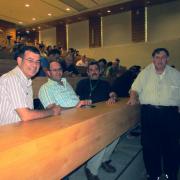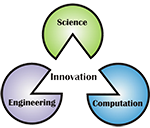
The ability to solve problems creatively and generate change is a recognized standard of success and plays an important role in gaining a competitive advantage in many areas. Despite the enormous effects of creative ideas, this is one component in managers’ work which traditionally defies quantitative evaluation or the applications of systematic approaches.
Not only is the original idea itself difficult to evaluate precisely, the ability to generate such ideas is generally considered an inherent personality trait that cannot be acquired: Creative people, it is generally believed, are born, not made. The conventional approach is, therefore, to view creative managers as a different class of individuals. Although creative individuals may have some degree of difficulty working on routine tasks or in a team, they compensate for these shortcomings by coming up with ideas that no one has ever thought of before. According to this approach, the stroke of genius or inspiration may occur once in ten years, yet the organization will benefit by waiting patiently to reap the fruits of its creative managers.
Supported by recent studies, this talk reflects a completely different approach to creativity, and is grounded in the assumption that creative thinking is not different from other cognitive processes used in the best professional reasoning. Creative thought processes simply differ in the distinct orientation they establish to problem definition: Creative problem solving directs the solver to search in areas that are potentially richer in creative solutions. Creativity, then, is a skill, not a trait, which can be acquired and improved by practice; it can be part of the manager’s toolbox, and it can be applied on demand.
Prof. Goldenberg Website: http://www.jacobgoldenberg.com
Thursday the 2nd of June at 16:00 Main Auditorium, The Rothberg Building of Engineering and Computer Science, Edmond J. Safra Campus, Givat Ram
For details please contact: galiashn@savion.huji.ac.il

